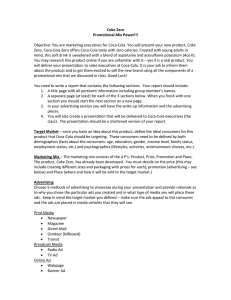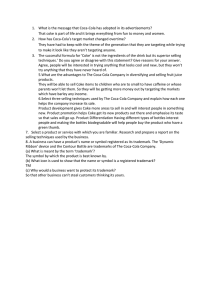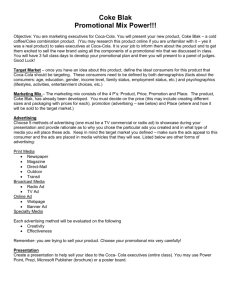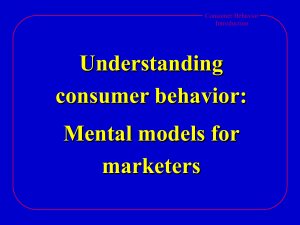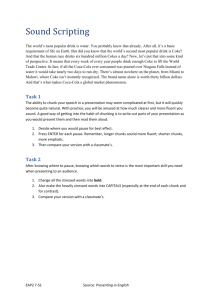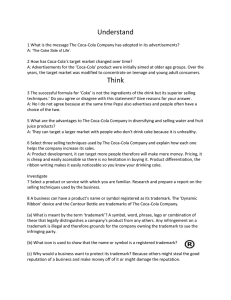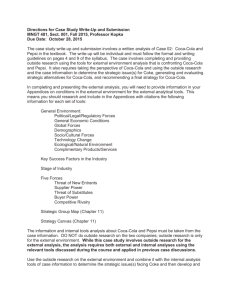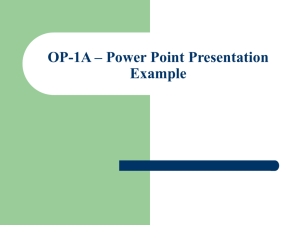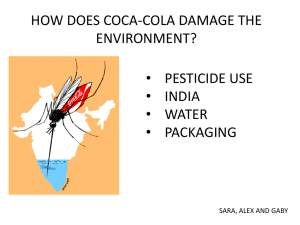Why I Said No to Coca-Cola
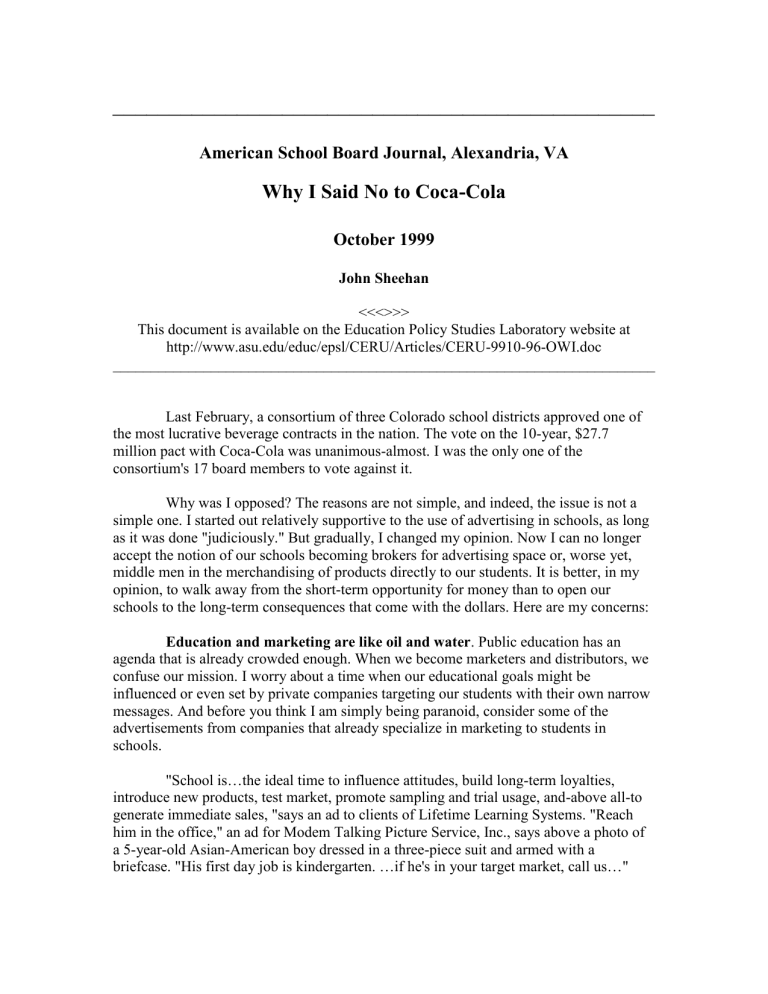
________________________________________________
American School Board Journal, Alexandria, VA
Why I Said No to Coca-Cola
October 1999
John Sheehan
<<<>>>
This document is available on the Education Policy Studies Laboratory website at http://www.asu.edu/educ/epsl/CERU/Articles/CERU-9910-96-OWI.doc
________________________________________________________________________
Last February, a consortium of three Colorado school districts approved one of the most lucrative beverage contracts in the nation. The vote on the 10-year, $27.7 million pact with Coca-Cola was unanimous-almost. I was the only one of the consortium's 17 board members to vote against it.
Why was I opposed? The reasons are not simple, and indeed, the issue is not a simple one. I started out relatively supportive to the use of advertising in schools, as long as it was done "judiciously." But gradually, I changed my opinion. Now I can no longer accept the notion of our schools becoming brokers for advertising space or, worse yet, middle men in the merchandising of products directly to our students. It is better, in my opinion, to walk away from the short-term opportunity for money than to open our schools to the long-term consequences that come with the dollars. Here are my concerns:
Education and marketing are like oil and water . Public education has an agenda that is already crowded enough. When we become marketers and distributors, we confuse our mission. I worry about a time when our educational goals might be influenced or even set by private companies targeting our students with their own narrow messages. And before you think I am simply being paranoid, consider some of the advertisements from companies that already specialize in marketing to students in schools.
"School is…the ideal time to influence attitudes, build long-term loyalties, introduce new products, test market, promote sampling and trial usage, and-above all-to generate immediate sales, "says an ad to clients of Lifetime Learning Systems. "Reach him in the office," an ad for Modem Talking Picture Service, Inc., says above a photo of a 5-year-old Asian-American boy dressed in a three-piece suit and armed with a briefcase. "His first day job is kindergarten. …if he's in your target market, call us…"
How long will it be before these messages become our message?
We are opening the floodgates of consumerism.
We have all become inured to the constant barrage of advertising, but for me, consumerism is a real problem The pressure to buy and to measure our success in life through the things we acquire is overwhelming. Education should offer a way for students to seek a good life that means more than just wealth. It saddens me to see our schools become part of this marketing machinery. Public schools should be a respite from the constant onslaught of advertisers.
And there is no such thing as opening the floodgates just a little bit. The driving force behind the marketing machine is immense. Once in the door, businesses will be ceaseless in their efforts to gain more ground. In our hight schools, Coca-Cola has already won the opportunity to put 20 coke machines in each building. Our contract with the company alludes to the idea that Coke sales in the lunchroom could become a reality if the U.S. Department of Agriculture were to sanction Coke products within the federal lunch program.
Businesses are targeting a captive audience. There is something unethical, in my opinion, about viewing our captive audience of students as targets of current and future marketing efforts. These students are captive only because our schools have been entrusted with the responsibility of education them. Taking financial advantage of this unique situation is a breach of that trust.
We are letting our legislators and the public off the hook.
Yes, schools need money, but turning to commercial sales for income is a cop-out. It sends the message to our voters and legislators that we can let them off the hook-that advertising and sales of consumer products can fill the gap when it comes to supporting education. My state ranks pitifully low in funding for public schools, but when we sign up with corporate giants like
Coke, we are sending the message that a multimillion-dollar market is ours for the taking.
What incentive is there for our legislators to re-think their priorities?
Most of the decisions school boards make are not grand decisions that have a huge and immediate impact; they are incremental. The decision to sign a contract with
Coca-Cola is also incremental. Today, we feel reasonably safeguarded from abuses in advertising and sales. But let's put things in context. I have already heard from our administration that this decision is no big deal because schools already sell soda. Some
20 years ago or so, an administrator decided to put a vending machine in the building to raise a little loose change. Do you suppose anyone saw that decision as the harbinger of a multimillion-dollar marketing arrangement among three major Colorado school districts and Coca-Cola?
I doubt it. And I can't imagine what things might look like 20 years from now.
